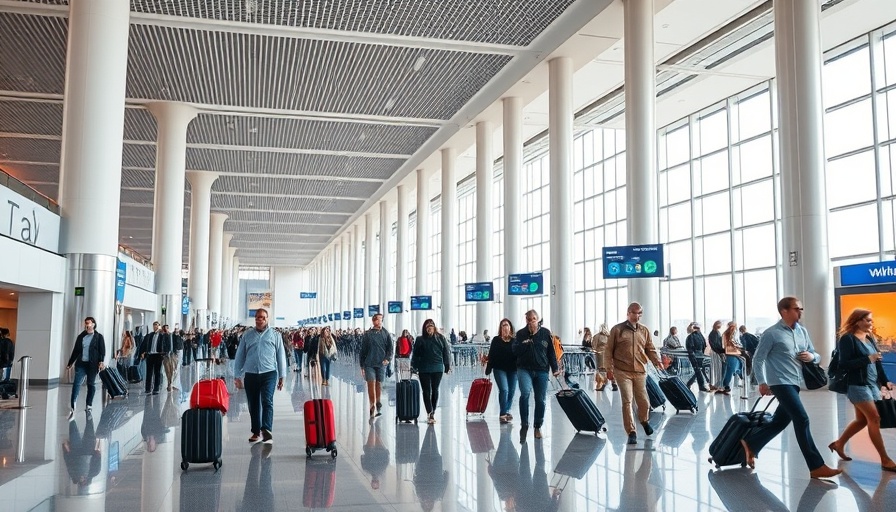
Global Changes Impacting European Aviation
During the opening of the ACI Europe Annual Congress in Athens, Marc De Vos, the Co-Chief Executive Officer of the Itinera Institute, delivered a keynote that struck at the heart of the modern aviation industry's challenges and opportunities. His insights delve into how recent geopolitical shifts are set to redefine aviation within Europe, particularly against a backdrop of economic fragmentation and strategic competition.
From Globalization to Strategic Competition
De Vos opines that the world is moving away from the era of globalization characterized by trust, free trade, and multilateral norms. Instead, we are witnessing the rise of strategic competition among states. This shift is not merely a passing phase; it signals ongoing structural volatility within aviation. Governments are asserting their influence through geo-economic strategies, reshaping markets to align with national interests. In this evolving environment, international trade is now a reflection of geopolitical alliances rather than just a vehicle for profit.
The Importance of Trust in Aviation
With a focus on the element of trust, De Vos highlights how future trade in aviation will not merely be transactional. Countries will engage based on security and strategic alignments rather than solely commercial prospects. This new reality carries significant implications for European aviation, which fundamentally relies on open skies and international investment. The era ahead calls for innovation in hotel development and hospitality trends that align with emerging geopolitical climates.
Europe's Balancing Act: Between Autonomy and Collaboration
Europe finds itself at a crossroads, relatively isolated in the shifting global order with the United States becoming less involved. De Vos emphasizes that the EU must harmonize its foundational principles of cooperation with emerging demands for autonomy and resilience. Brussels is grappling with what he terms a "collective action problem," where member states must unite on strategic defense, trade policies, and aviation regulations.
Implications for the Hospitality Industry
The shift in geopolitical dynamics means that the hospitality industry, and more specifically, the trends in hotel development and luxury accommodations may experience a seismic shift. Hotels are not just destinations but key players in fostering trust and collaboration among nations. As the landscape changes, savvy investors will need to adapt hotel acquisitions and reconsider partnerships that resonate with the new geopolitical climate.
Future Predictions: Navigating a New Era
What does this mean for the future? Experts suggest that we will see an influx of boutique hotels and sustainable hotels as travelers increasingly seek experiences that align with their values. There may also be a growing interest in hotel renovations that focus on sustainability and local culture. Global hotel chains could further adapt their marketing strategies and loyalty programs to meet the expectations of a more discerning clientele.
Be Prepared for Changes in Hotel Rates and Occupancy
As the aviation sector encounters structural volatility due to geopolitical shifts, hotel rates and occupancy levels in major European cities may fluctuate accordingly. Hoteliers need to stay agile, leveraging technology and market insights to ensure they make informed decisions about staffing and pricing strategies during this period of change.
Contact Us for Expert Travel Consultations!
Your travel experience in this evolving landscape hinges on partnership and insight. Whether you’re looking to explore exclusive accommodations or luxurious honeymoon destinations, fill out our form at www.sitinmyseats.com for a free consultation that helps you navigate this dynamic travel environment.
 Add Row
Add Row  Add
Add 




Write A Comment